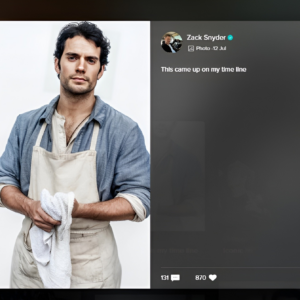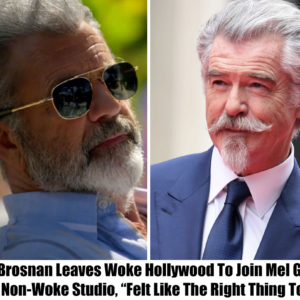
In a surprising cultural showdown, country music icon Ronnie Milsap has ignited controversy within the country and pop music realms. His scathing critique of Beyoncé’s foray into country music with her concept album, Cowboy Carter, is causing ripples across the industry. Milsap, celebrated for his pivotal role in country music and his chart-topping hits from the 70s and 80s, bluntly called Beyoncé an “impostor” and criticized her country music endeavors as lacking authenticity.
“Sure, she’s talented, but she’s not a country musician. Donning a cowboy hat and playing a few chords doesn’t make it country,” Milsap declared during a recent interview with a Nashville radio station. His remarks coincide with Beyoncé’s album not just achieving number one on the Billboard country charts but also initiating a wider debate on genre boundaries and the genuineness of musical artistry.
Beyoncé’s Cowboy Carter is undeniably a fusion experiment, blending elements of country with hip-hop, pop, blues, and even an Irish jig. The album, which is the second in a trilogy that Beyoncé describes as a “journey through a reinvention of Americana,” has been both praised and critiqued for its eclectic sound and ambitious scope. Critics and fans laud her for breaking musical barriers and exploring the roots of American music through a modern lens. However, some traditionalists view her genre-bending as a step too far, arguing that her approach lacks the purity and simplicity that define classic country music.
Milsap’s critique taps into this vein of purism. “Country music is about storytelling, simplicity, and soul. It’s not about mixing everything up like a salad bar and hoping it tastes good,” he explained. His comments reflect a broader skepticism among some veteran artists and fans who feel that the genre’s boundaries are being stretched too thinly in an era of musical hybrids.
However, to understand the full impact of Beyoncé’s album, it’s essential to recognize her stated intention: to spotlight the often-overlooked contributions of Black pioneers in American musical and cultural history. This includes focusing on Black artists in the country genre, where they have historically been marginalized. Cowboy Carter features collaborations with Black country artists like Brittney Spencer and Willie Jones, blending their voices with Beyoncé’s to create a tapestry of sound that is both new and deeply rooted in history.
Despite Milsap’s harsh words, many in the music industry have rushed to Beyoncé’s defense, arguing that her work is revitalizing interest in country music among younger and more diverse audiences. “What Beyoncé is doing is opening doors. She’s inviting people to experience country in a new way, and that’s something we should celebrate, not condemn,” said music producer and songwriter Marcus Hummon.
The debate surrounding the definition of “real” country music is longstanding. Throughout the years, the genre has undergone several transformations, from the classic tunes of Hank Williams and Patsy Cline to the pop elements introduced by artists such as Taylor Swift and Carrie Underwood. Each shift has ignited debates and controversies over authenticity and creativity.
Beyoncé has not personally addressed Milsap’s remarks, but individuals close to the singer report that she remains dedicated to her artistic vision and welcomes the dialogue sparked by her album. “Beyoncé believes in music’s ability to connect histories and communities. If ‘Cowboy Carter’ provokes a reevaluation of country music’s boundaries, then it’s a conversation worth engaging in,” stated an insider.
Meanwhile, the album continues to perform well commercially and critically, suggesting that public opinion may be more open to Beyoncé’s genre-blending than the purists might hope. The singles “Texas Hold ‘Em” and “16 Carriages” have become anthems for a new generation of country fans, many of whom are drawn to the music precisely because of its innovative mix of styles.
As the debate rages on, it’s clear that Cowboy Carter is more than just an album; it’s a cultural moment that is testing the boundaries of musical genres and the meaning of authenticity. Whether one agrees with Milsap or sees Beyoncé’s work as a bold reimagining of country music, it’s undeniable that this clash of musical titans has struck a chord in the heart of the American cultural landscape.
This controversy, while highlighting the tensions inherent in musical evolution, also underscores a vital point: music, like culture, is not static. It is ever-evolving, influenced by the currents of history, technology, and society. Beyoncé, through Cowboy Carter, is both a product of this evolution and a catalyst for further change, challenging us to rethink what it means to be a country artist in the 21st century.
News
Zack Snyder Shows Off New Henry Cavill Image From ‘Man of Steel’ – S
Zack making sure fans don’t forget about his DCEU. On Friday, Zack Snyder again took to the Vero app to show off his DCEU, this time with Henry Cavill as Clark Kent from Man of Steel. “This came up on my…
Goodbye DC and Superman, Henry Cavill reveals his favorite role if he joins MCU – S
Henry Cavill has expressed his favorite role if he has the opportunity to collaborate with Marvel Studios. Henry Cavill has officially said goodbye to the role of Superman after the DCEU ended at the end of 2023 to open the…
Breaking: Jack Black Vows To Leave The US Permanently, “I Just Can’t Take It Anymore” – S
In a stunning turn of events, beloved actor and musician Jack Black has announced his departure from the United States, citing a lack of respect as the primary reason for his decision. The star, known for his infectious energy and…
Pierce Brosnan Leaves Woke Hollywood To Join Mel Gibson’s New Non-Woke Studio, “Felt Like The Right Thing To Do” – S
In a surprising turn of events, Pierce Brosnan has announced that he will be joining forces with Mel Gibson in a bold new venture. Gibson’s latest project, a non-woke production studio, aims to create content that diverges from the mainstream…
Henry Cavill reveals his ‘Warhammer 40k’ project is ‘progressing very well’ – S
Henry Cavill has provided a brief but promising update on his upcoming Warhammer 40,000 project. Since Henry Cavill’s controversial departure from the DCU, he has been attached to several highly ambitious projects. One of them is the live-action adaptation of the beloved miniature…
‘Warhammer 40k’ Trolls Are Projecting Their Bigotry on Henry Cavill – S
One of Henry Cavill’s biggest upcoming projects is an undisclosed role in Amazon’s Warhammer 40k TV show adaptation. However, rumor has it that the actor may have left the production. Shortly after announcing his departure from The Witcher and the DCU, Cavill revealed that…
End of content
No more pages to load











